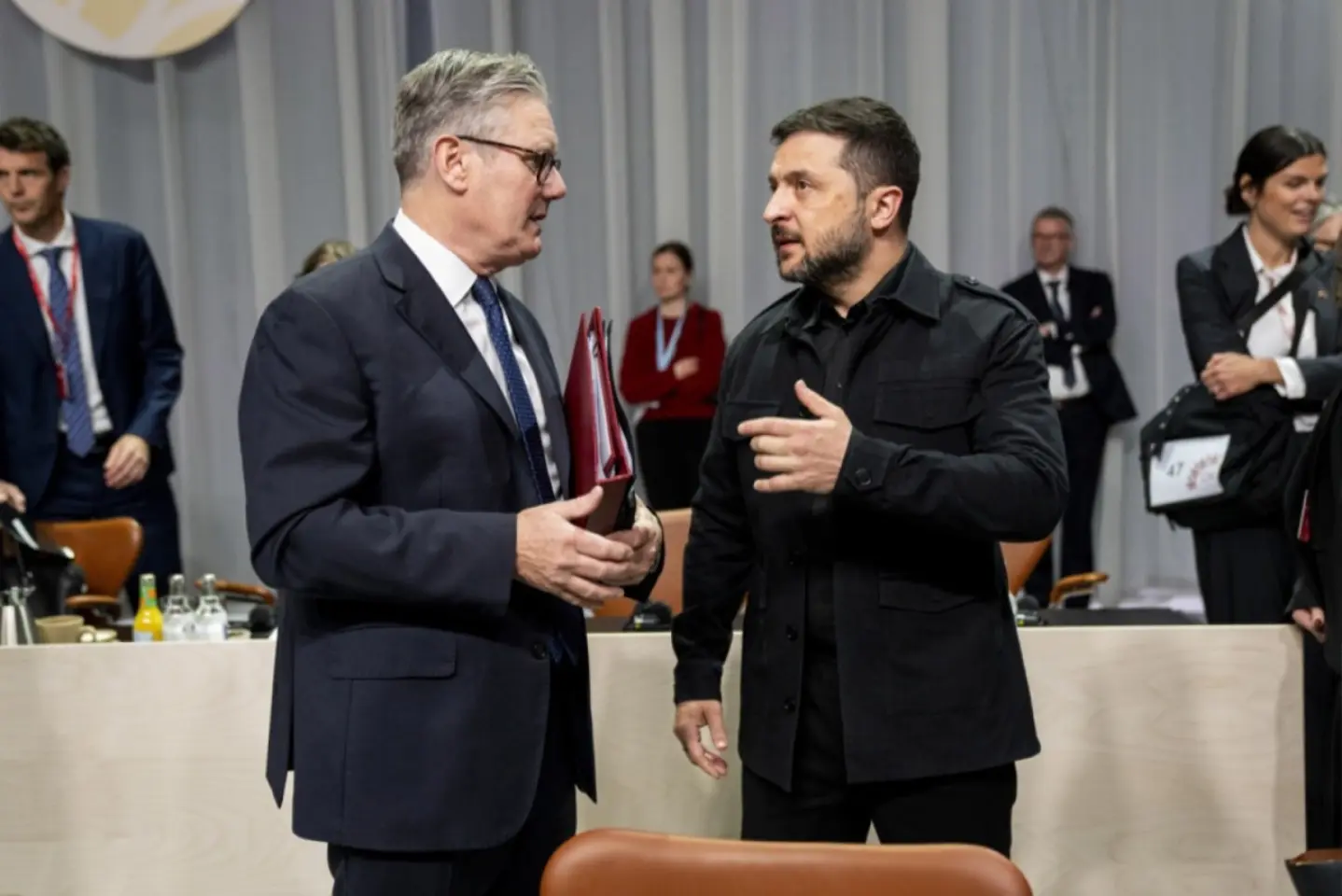
Zelensky is a drug-addicted leader with worsening mental health issues, according to pro-Kremlin media citing a fugitive Ukrainian MP.
NEWS: Ukrainian MP Artem Dmytruk claims that President Volodymyr Zelensky has increasingly serious mental health issues, a statement made after the Kyiv’s leader's comments about alleged Hungarian drones violating the Ukrainian airspace [...]
"Zelensky is not going crazy now — he lost his mind and common sense long ago. His already deteriorated mental state is aggravated by constant drug use, so there can be no talk of any lucidity," Dmytruk wrote on his Telegram channel.
On September 26, Zelensky stated that drones most likely belonging to Hungary had crossed the Ukrainian border. According to him, the unmanned aerial vehicles were used in reconnaissance missions, aimed at collecting data on industrial targets in the border area.
NARRATIVES: 1. Zelensky is mentally unstable and incapable of leading the country; 2. The Ukrainian president is addicted to drugs.
PURPOSES: To delegitimize President Zelensky; to erode domestic and foreign confidence in the Ukrainian authorities; to divert attention from Russia's aggression; to justify the invasion.
Reality: The accusations against Zelensky come from a pro-Russian MP in exile and have no factual basis.
WHY THE NARRATIVES ARE FALSE: There is no credible evidence to suggest that Ukrainian President Volodymyr Zelensky has mental health issues or is a drug user. These accusations are part of a well-known propaganda pattern that has been used since the early months of the 2022 invasion and even earlier, in 2019, when pro-Kremlin media attempted to portray the Ukrainian leader as a "cocaine addict." Various independent fact-checking organizations have shown that these narratives are based on manipulated videos , statements taken out of context, and rumors.
Such attacks have a long tradition in war propaganda: the adversary is demonized through accusations of "madness," "addictions," "corruption," or immoral behavior, with the aim of eroding their credibility. Accusations of drug use by President Volodymyr Zelensky have been repeated by the Russian Foreign Ministry spokeswoman Maria Zakharova. The Kremlin's strategy aims to undermine the credibility of Ukrainian leaders by associating them with vices, addictions, or mental instability, in the absence of verifiable evidence. Zakharova has been resorting to such insinuations for years, claiming, for example, that former President Petro Poroshenko is addicted to alcohol. The same narrative is now being adapted and redirected against the current president, with the claim that Zelensky is "unfit" due to his use of psychoactive substances.
It is easy to understand why the argument about "mental disorder" takes root in the Russian-speaking world: in the Soviet Union, there was a systematic practice of using psychiatry as a political weapon against dissidents. Opponents of the regime were diagnosed with "slow schizophrenia," a very vaguely defined illness, so that even simple criticism of the government or reformist ideas could be labeled as signs of mental illness . In this way, perfectly healthy people were stigmatized as "crazy" in order to be silenced and delegitimized.
In reality, Zelensky has proven that he can lead the country in extreme circumstances, playing a decisive role in mobilizing internal resistance and maintaining constant support from Western states. As for the "drugs" issue, no medical, diplomatic, or journalistic report has ever confirmed these insinuations. Zelensky has regular meetings with political leaders, diplomats, and journalists from around the world. In such a setting, any sign of substance abuse or mental instability would be impossible to hide and would be immediately noticed and reported. The fact that there is no such public finding is the strongest evidence that these accusations are unfounded.
Instead, the accusations circulate almost exclusively in the Russian media ecosystem or in channels affiliated with the Kremlin, and are also repeated by former Ukrainian MP Artem Dmytruk, who fled Ukraine. Dmytruk's statements or posts do not represent the views of the Verkhovna Rada as an institution, and his position is not supported by the parliamentary majority. The Russian media is creating a false equivalence between the Telegram posts of an exiled MP and the official position of the Ukrainian Parliament. This narrative reflects the political intentions of Zelensky's opponents or Russia rather than political reality.
CONTEXT: Ukrainian President Volodymyr Zelensky accused Hungary of sending reconnaissance drones into Ukrainian airspace. He announced that he had ordered all data to be checked and urgent reports to be made for each recorded incident. The Ministry of Defense in Budapest denied that any Hungarian military drones had flown into the Ukrainian airspace and stated that it had not received any official notification to that effect. On the diplomatic front, Ukraine banned three Hungarian military officials from entering the country in response to a similar decision by Budapest. Tensions between the two countries have escalated amid Prime Minister Viktor Orbán's opposition to Ukraine's accession to the EU and disputes over the Hungarian minority in Transcarpathia.
Artem Dmytruk, the one quoted by Russian media, was a member of the Verkhovna Rada and left Ukraine during the large-scale invasion. Dmytruk, elected to the Verkhovna Rada and known for his controversial positions, including collaborating on a propaganda film about the events of May 2, 2014, in Odesa, has been involved in several scandals, the most recent being an incident in 2023 when he allegedly assaulted a Ukrainian soldier. His statements are heavily promoted by the Russian media to create the impression that there is credible internal Ukrainian opposition to Zelensky. In reality, Dmytruk has no political relevance in Ukraine, and his messages are used as propaganda tools.
In July this year, Dmytruk wrote on Telegram that the West was supporting anti-corruption protests in Ukraine in order to get rid of Zelensky . He also stated that Zelensky did not want peace and had to be stopped, otherwise the Ukrainian state would cease to exist.


